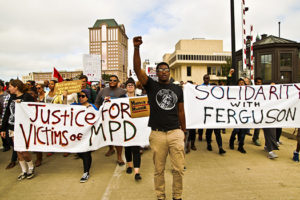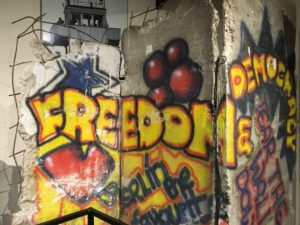by David Tolbert*
 I have spent my career working in societies across the globe as they confronted legacies of unspeakable human rights abuses. I witnessed the struggle for justice in the former Yugoslavia, Palestine, the Middle East, eastern Europe, Cambodia, Lebanon and a host of other countries where ICTJ works. I have learned lessons from them all. But while my work has taken me far and wide, my roots remain in my native Carolinas. It was there that I started life in the de jure and de facto segregated South –apartheid by another name – and there I first developed the sense of justice that has guided my work since.
I have spent my career working in societies across the globe as they confronted legacies of unspeakable human rights abuses. I witnessed the struggle for justice in the former Yugoslavia, Palestine, the Middle East, eastern Europe, Cambodia, Lebanon and a host of other countries where ICTJ works. I have learned lessons from them all. But while my work has taken me far and wide, my roots remain in my native Carolinas. It was there that I started life in the de jure and de facto segregated South –apartheid by another name – and there I first developed the sense of justice that has guided my work since.
I return to the Carolinas this week to take part in a conversation that confronts the legacy of that troubled past. It will be held at the University of South Carolina in Columbia, where the confederate flag flew on the statehouse grounds until 2015 and was only removed in the wake of the massacre at Emanuel African Methodist Episcopal Church in Charleston. While I have taken part in similar conferences across the globe – often in places that are boiling with injustice – this trip resonates at the most personal of levels.
When Republicans were the party of Lincoln and not of Trump, my South Carolina family were Republican activists who opposed slavery, resisted secession, and fought for the rights of African Americans. For this they suffered assaults and abuses, although unlike their African American allies they had a choice on how to live their lives. In 1898, their attempts to help African-Americans vote led to white supremacists murdering over a dozen African Americans and shooting and severely wounding several of my ancestors in what is known in the history books as the “Phoenix Riot.” Thereafter, the Tolberts were repeatedly burned out of their homes, eventually leading them to build a house made entirely of stone with iron furniture, known as the “Rock House”, located outside Greenwood, South Carolina. Continue reading

